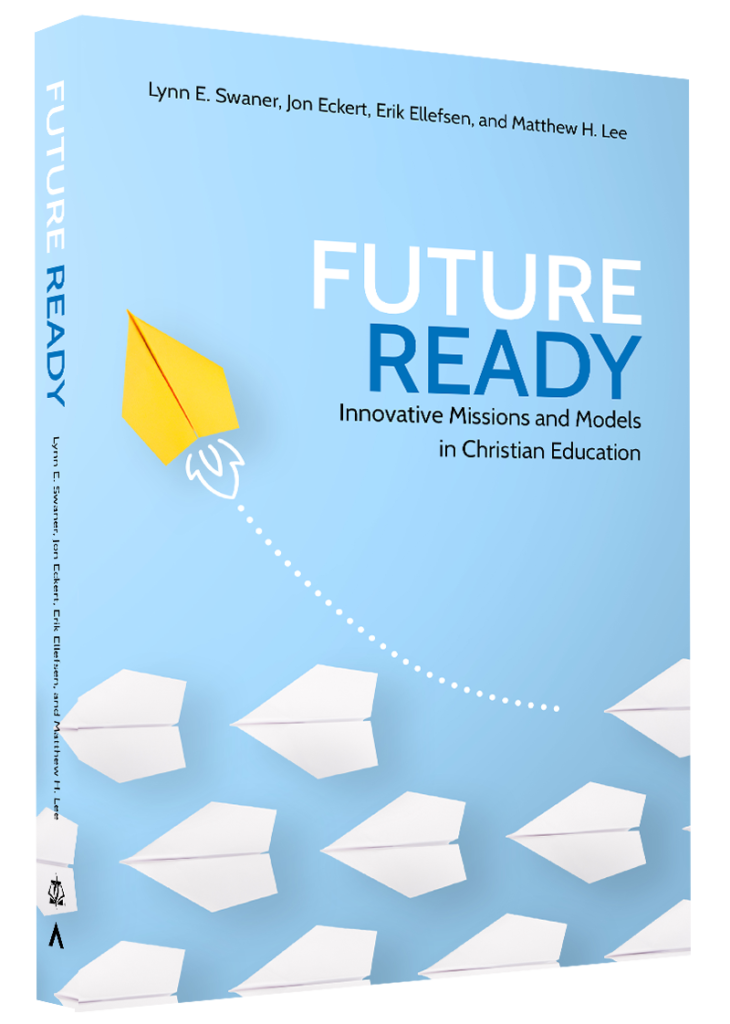Many school leaders are old enough to remember what it was like to travel long distances by car before GPS, with our glove boxes full of printed maps picked up from gas stations along the way. Today, we can plug a destination in our phone’s map app, hit start, and get the correct turn-by-turn directions. Except when we don’t, of course. Sometimes because of a poor signal, new construction, or even a wrong turn we’ve made, the dreaded “recalculating” message emanates from our phones. We’ve all been there—praying that a new route appears quickly, while we continue to drive without the guidance we’ve become so dependent on, often at high speeds, and flying by exits we don’t know if we should have taken or not.
This moment of anxiety has become the norm for many of today’s educational leaders when they think about the direction of their schools, career, and profession. School leadership is perhaps more challenging than at any previous time in history, filled with both known and unknown obstacles—as well as opportunities. For Christian schools, the world in which most were founded—during the latter half of the 20th century—no longer exists. It is not surprising that the financial and educational models on which Christian schools were built are often no longer suited to the market, cultural, and societal realities of today. Whether we like it or not, this is a “recalculating” moment in Christian education—when it’s time to move into new places that our trusted maps cannot likely take us.
It’s Time for New Maps
Two authors inspire us to think of the future of Christian schools in terms of maps. First, in Canoeing the Mountains: Christian Leadership in Unchartered Territory (2015), Tod Bolsinger of Fuller Seminary recounts the two-year exploratory journey of Meriwether Lewis and William Clark through the Louisiana Purchase as going “off the map and into unchartered territory… What lay before them was nothing like what was behind them. There were no experts, no maps, no ‘best practices’ and no sure guides who could lead them safely and successfully” (27). Bolsinger makes the case that most challenges facing today’s organizations are similar, because they are “adaptive” in nature—meaning they “go beyond the technical solutions of resident experts or best practices, or even the organization’s current knowledge. They arise when the world around us has changed but we continue to live on the successes of the past” (19).
Tim Elmore applies similar thinking to the field of education in his book Marching Off the Map: Inspire Students to Navigate a Brand New World. In recounting the practice of ancient mapmakers in inserting dragons or serpents in corners of the map where land had yet to be explored, Elmore explains, “Mapmakers would include a drawing like this to communicate the message: Over here—this land is a known world. But up there—we don’t know what exists. It’s unknown territory. Be afraid. Be very afraid” (21). Elmore uses this analogy to explain the state of schools today, where leaders need to “recognize what changes you must make to lead and equip a new generation of emerging adults who live in the corner of the map” (22). This is especially true if we as educators have gotten used to receiving turn-by-turn directions from the tried-and-true voices in our field, whose advice worked well for times that were more stable or predictable. But now, as Elmore explains, “Making new maps is an art we must learn” (21).
In the book MindShift: Catalyzing Change in Christian Education (Swaner, Beerens, and Ellefsen 2019), and with the help of Rex Miller, a futurist and pioneer of the MindShift process of sector-level transformation, we see the importance of finding outliers—those few who have already taken steps off the map, or have marched off entirely—and understanding their stories. A new study, co-published by ACSI and Cardus, applies this method to the question of how Christian schools can become financially and structurally sustainable for the future, thereby ensuring that their missions can continue and even expand as they reach more students and communities.
The Study: Becoming Future Ready

In 2019 ACSI received generous grant funding and, in partnership with Cardus, launched a two-year research project in which a research team identified, surveyed, and visited 11 schools and networks that have developed innovative approaches to sustainability while at the same time increasing access to Christian education. More than tweaking a practice or process here or there, they merged schools, started online academies, developed microschools, advocated for school choice programs, formed Christian school districts, shared backend functions with other schools, engaged in entrepreneurship and facilities leasing, started brand-new schools, and provided inclusive education for students of all abilities.
Using an appreciative inquiry framework, the research team identified three key themes across this group of schools. Related to mission and culture, schools prioritized distinctiveness, relevancy, and inclusion as means toward ensuring their missions continue into the future. Regarding structures and practices, schools resourced creatively, reimagined structures, and took disciplined risks as they implemented non-traditional models of school finance and operations. Finally, related to people and community, schools prioritized their staff, invited partnerships, and shared innovation with other schools. These themes show how future-ready Christian schools are not only addressing challenges to long-term sustainability, but also transforming them into catalysts for mission-driven growth.
Accessing the Study
On August 1, 2022, a digital excerpt of the first third of the study was made available for free download at https://your.acsi.org/futureready. This excerpt covers the first theme, that of mission and culture. All three themes will be covered in a book that ACSI and Cardus will co-publish in late fall 2022, which will be sent to every ACSI member school (additional copies will be available for order at the same website). The stories and strategies shared by the schools and networks in the study will inspire leaders to think innovatively, strategically, and above all, missionally about how to reach future generations with the love of God through healthy, thriving Christian schools.
About the Authors

Dr. Lynn E. Swaner is the chief strategy and innovation officer at the Association of Christian Schools International, where she leads initiatives and develops strategies to address compelling questions and challenges facing Christian education. Dr. Swaner serves as a Cardus senior fellow and is the co-author or editor of numerous books on Christian education, including Flourishing Together: A Christian Vision for Students, Educators, and Schools< and MindShift: Catalyzing Change in Christian Education. She can be reached via email at lynn_swaner@acsi.org and followed on Twitter @LynnSwaner1.
 Matthew H. Lee is director of research at the Association of Christian Schools International and an adjunct professor of education policy at Johns Hopkins University, where he teaches a course on education finance. He is co-editor of Religious Liberty and Education (Rowman & Littlefield, 2020) and author of numerous peer-reviewed research articles, book chapters, technical reports, and op-eds on civics education, education leadership, and religious education. He can be reached via email at matthew_lee@acsi.org and followed on Twitter @hmatthewlee.
Matthew H. Lee is director of research at the Association of Christian Schools International and an adjunct professor of education policy at Johns Hopkins University, where he teaches a course on education finance. He is co-editor of Religious Liberty and Education (Rowman & Littlefield, 2020) and author of numerous peer-reviewed research articles, book chapters, technical reports, and op-eds on civics education, education leadership, and religious education. He can be reached via email at matthew_lee@acsi.org and followed on Twitter @hmatthewlee.

